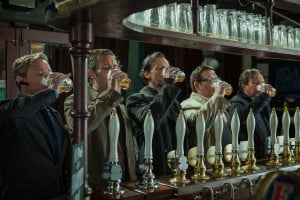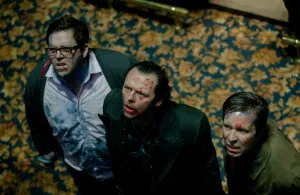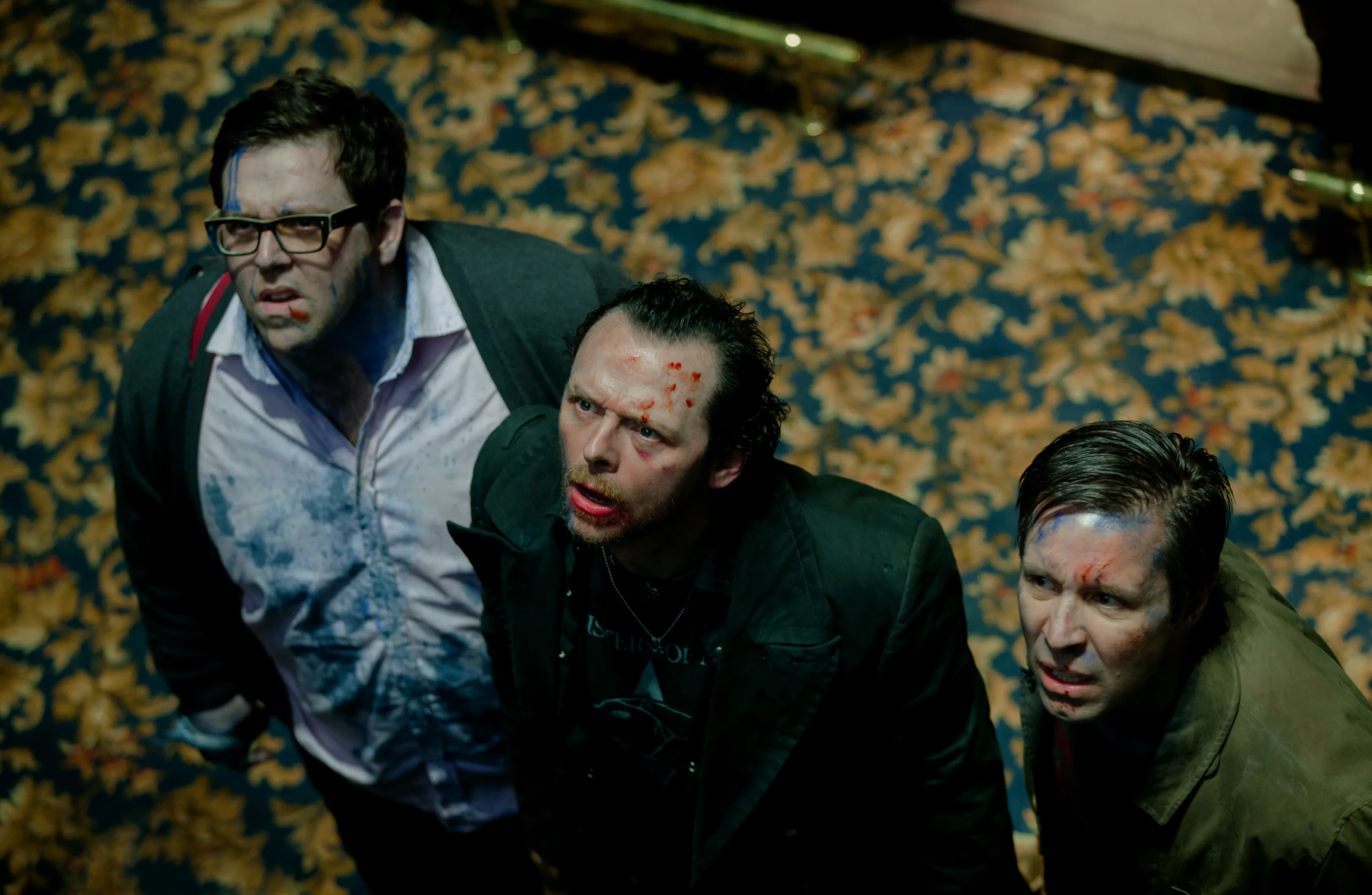
There aren’t many film series quite like director Edgar Wright’s Three Flavours Cornetto trilogy, which left plenty of room for discussion when The Daily talked with Wright and stars Simon Pegg and Nick Frost in advance of the concluding film’s premiere later this month.
Each of the three films — “Shaun of the Dead,” “Hot Fuzz” and “The World’s End,” out Aug. 23 — represents a collaboration between Wright, Pegg and Frost, but feature different characters, are situated in a different genre and tell a different story.
While “Shaun” was a send-up of zombie flicks and “Hot Fuzz” did the same for buddy cop movies, “The World’s End” is a parody of alien invasion films. The story centers around Gary King (Pegg), a washed-up manchild who reunites the posse of his teenage years to complete a pub crawl in their hometown. A few pubs in, however, Gary and his estranged friends realize that the town’s population has been replaced with identical robots. Chaos ensues.
The idea of the individual being pitted against the collective is present in all three films. So is the concept of a seemingly innocuous setting turning out to be anything but.
“I came from a very sleepy sort of town, so I think I naturally gravitate towards being a dreamer and thinking about the dark secrets behind

closed doors or having these dreams of just wrecking the place,” Wright said. “So I always just returned to that idea.”
The film is packed with Easter eggs, including the obligatory fence-jump and Cornetto scenes. The attention to detail doesn’t end there, however, with each pub featured in the film named after one that exists somewhere in the United Kingdom.
“Every pub name has a bearing on what happens inside,” Pegg said. “The pub names are a key to the plot of the film in a way, down to the fact that the signs are even like tarot cards that will tell you what’s going to happen inside.”
After writing the script, Wright and Pegg sifted through names of pubs to determine the ones best suited to the plot. They applied a similar approach in selecting the tracks that appear on the nostalgia-heavy soundtrack — the pair listened to a mixtape of songs released from 1988 to 1993 on repeat while writing, and some of those songs found their way into the script.
“It wasn’t just a case of you get to the end and you see what works,” Wright said. “A lot of them were written into the script and even played in on set whether it was Primal Scream or Soup Dragons or Suede. There’s that scene where they’re walking through town, and it’s playing ‘So Young’ by Suede and the actors all had it in their ears — we had earwigs and they were listening to the songs and walking along.”
A choreographer helped to coordinate movements to music and also to simulate the drunken swagger the majority of the characters needed, as they spend the better half of the film utterly intoxicated.
While pubs play prominent roles not just in “The World’s End” but in all three films in the trilogy, Wright, Pegg and Frost emphasized that they aren’t encouraging alcoholism or hedonism.
“This film isn’t a celebration of alcohol, it’s not a celebration of the manchild and ‘Let’s get drunk all the time and have fun,’” Pegg said. “That isn’t the answer in this film. In a way, that’s Gary’s disability — his desire to do [so].”
“We are celebrating smashing robots’ heads in, though,” Wright noted.
Gary’s story, and the plot of “The World’s End” as a whole, functions as a cautionary tale of the dangers of nostalgia and of living in the past. It’s also a critique of the increasingly homogenized, even robotic, world we live in. Upon their return to their hometown of Newton Haven, the friends find that the pubs they left behind have become eerily similar to one another, a result of what Pegg refers to as the “Starbucks factor.”
It’s a defining characteristic of the Cornetto trilogy: what starts as parody of a genre evolves to become an outstanding example of the genre itself, bringing fresh and thought-provoking ideas to the table.
“A lot of comedies are so ephemeral and completely dissipate in your mind by the time you’ve gone to the parking lot,” Wright said. “We like films that might stick with you a bit longer, and even though they’ve got laughs in them and it’s silly and exciting, there are deeper themes that hopefully resonate longer.”
